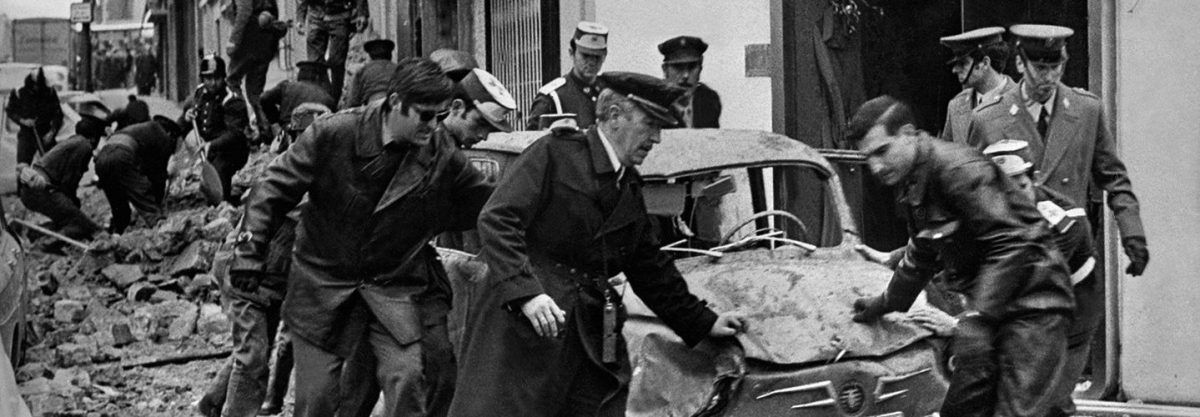The September 11th terrorist attacks occurred just weeks into my senior year of college. I vividly remember that I was doing laundry that day, and an underclassman came in and said something terrible was happening on TV and I should probably watch. I tuned in and never really stopped watching. I remember feeling so alone—as if the control I had over my fate had just been ripped out of my hands. At any moment, some nut-job could fly a plane into a building I was in and poof! There I went.
About a year after I graduated college in 2002, I decided to put my “future” on hold for a year and venture to Madrid, Spain, to teach English as a second language and ruminate on what I’d do when I returned home (it was there that I decided to become a journalist).
While living in Madrid, I had the opportunity to travel north to Barcelona and visit all the famous sights, the long-empty Olympic village, walk Las Ramblas, and enjoy more than my fair share of delicious food and wine. All my Madrileño friends had different advice about what to do there and where to go, speaking about it as if it were its own foreign country. And it practically is; along its highways and roads, signs are in Catalan, a language spoken there that is not unlike Spanish or French but is unique to the region.
I also remember discussing the 9/11 terror attacks with someone, trying to argue that they had helped foment the war that was gaining steam in Afghanistan and would soon lead to an invasion of Iraq. That person said something to the effect of “Spain has been dealing with its terrorism threat on a daily basis for a lot longer than the U.S. has, and we have neither bombed nor invaded anybody.” The perpetrators? A small, angry separatist group—basically, the “alt-right” of Spain—called ETA (pronounced eh-TAH).
The acronym actually stands for “Euskadi Ta Askatasuna,” which translates from Catalan to “Basque Homeland and Liberty.” In short, they were secessionists, who wanted the Basque Country to be a separate one from Spain. And when the Spanish obviously balked at the idea (see: the American Civil War), ETA fought back through domestic terrorism.

Founded in 1959, ETA terrorized Spain through the ’60s, ’70s, ’80s, ’90s, and aughts, with scores of deadly car bombings, kidnappings, murders, and assassinations. They managed to assassinate at least one sitting prime minister and even plotted an assassination of Spain’s king in 1995.
So that person had been right; Spain had been dealing with a regular terrorism threat on its homeland a lot longer than us Americans had—and some 800 people had lost their lives at the hands of ETA throughout the years. (Ironically, several months after I returned home from Madrid, a terrorist’s bomb targeted a commuter train—the one I used to take to my ESL classes outside of Madrid proper—killing 192 and injuring thousands. It was their own 9/11.)
Fast forward to April 2017, The Guardian reported that ETA had finally decided to lay down its arms, turning over a giant cache of weapons. It included automatic weapons, 25,000 rounds of ammunition and over 6,000 pounds of explosives. They gave the weapons to French authorities because the ETA’s “logistics and command structure” had been based in France even though most of its attacks had targeted Spain. The handover was lauded as a “historic” moment.
And then yesterday happened. When the first news began breaking of the terrorist attack in Barcelona—and ISIS claiming responsibility—all I could think of was this: Had I had that same conversation today, would the argument have been different? Now, according to the Daily Beast, Catalonia has become a “hub of Islamist activity in Spain.” The scourge that is Islamic terrorism has quickly become a global one—one that has stained not only the U.S. in blood, but also France, Belgium, England, and once again, Spain. And it made me sad to think that my friends in Spain now know what I felt like back then.
This article was featured in the InsideHook newsletter. Sign up now.
























